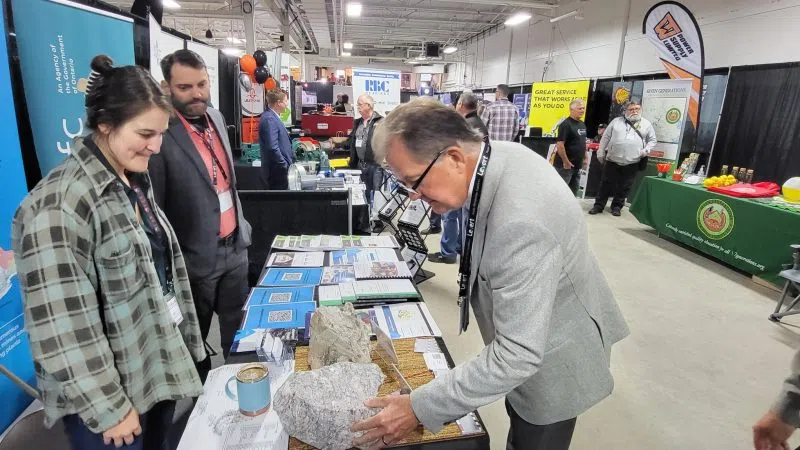City officials meet with MNRF minister
Several members of Dryden city council and staff members are attending the Northwestern Ontario Municipal Association convention this week in Thunder ...
11h ago
New employment office opens in Sioux Lookout
The Confederation College campus in Sioux Lookout now has a new feature. A Northwest Employment Works (NEW) office has been opened. The office helps p...
14h ago
Province announces funding to junior mining companies
The province has announced the recipients of the Ontario Junior Mining Exploration Program. $4.4 million is being made available to junior mining comp...
14h ago
New War Amps key tags available soon
War Amps of Canada says key tags should start showing up in local mailboxes this week in northwestern Ontario. Bob Maguire is a spokesperson for the W...
16h ago
What's Happening on CKDR
"Check Out" Ontario Park Day Passes
Dryden Public Library, Ear Falls Public Library, Sioux Lookout Public Library, and Red Lake Public library are all listed as participants! Give your l...
Apr 16, 2024
Red Apple Is Back In Sioux Lookout!
Lots of excitement in Sioux Lookout this past weekend! In fact it began on Friday when Red Apple's Grand Reopening in Sioux Lookout at 81 Front Stree...
Apr 15, 2024
Get Ready To Laugh!
Need a few laughs? 'Campfire Comedy' can help! 'Campfire Comedy' presents 'The Mark Menei Comedy Tour' with shows coming to several communities aroun...
Apr 10, 2024
Solar Eclipse 2024 in Sunset Country - Listener Images And Video!!
Despite overcast conditions yesterday afternoon in Northwestern Ontario not all was not lost went it came to seeing the Solar Eclipse! Thanks to a few...
Apr 09, 2024














